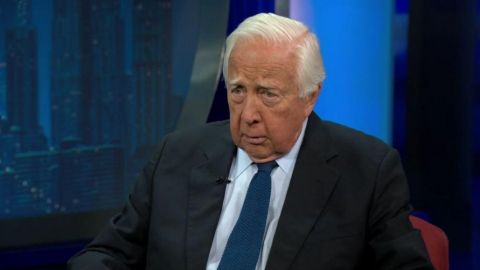Read Transcript EXPAND
CHRISTIANE AMANPOUR: And I want to know why you took that theme and that strand. Essentially, as you say, to re-examine things overlooked or misunderstood.
MALCOLM GLADWELL, HOST, “REVISIONIST HISTORY”: Yes. Well, you know, it’s — I was attracted by the idea that that word is typically used in a derogatory fashion, right? You know, you dismiss something as vicious history. So, I love rehabilitating phrases and suggesting that sometimes revisiting things can lead to good outcomes or at least interesting outcomes. But mostly what that — the pod cast is about it’s you want a broad enough rubric that you can examine anything you want. And I — each season, I broaden the definition of whatever I want.
AMANPOUR: You take on standardized testing. I mean, now that might sound whimsical but it’s about education, which is your passion, and you come at it from a non-American perspective. You’re famously Canadian and you have different experiences.
GLADWELL: I love the phrase, “Famously Canadian.”
AMANPOUR: Because you see in the “Revisionist” episode, you know, Canada is now the sort of the new sensible or, you know, in terms of what it can tell other parts of the world, particularly your neighbor to the south. So, on education and standardized questioning, what gives?
GLADWELL: I do two episodes. The first two first episodes of this season of “Revision History” concern the LSAT. But I’m really interested in — I’m using the LSAT as a kind of proxy for all standardized testing and have a very simple question, which is, why do they place such strict time limits on the test? What is gained by making someone hurry through those tests? Why am I more interested in the result of a standardized test where I make the student rush through all the questions than I would be in the result if I gave the student the time necessary to think deeply about how to answer them appropriately, right? So, we have a — those tests are constructed so that you do not — so that you are under constant time pressure. What is this theory behind the time pressure?
AMANPOUR: And what did you find out?
GLADWELL: Well, I went to the people who make the test and it turned out they don’t have a terribly good explanation for why they speed them up. And then I talk to people about who sort of think about tests conceptually and they said, “Well, when you place a time limit, a strict time limit, as we do on things like the SAT or the LSAT or the GRE or any of these tests, you change the result.” So, you privilege a certain kind of thinker over [13:05:00] another kind of thinker over another kind of thinker. And it’s not clear that the people that you’re privileging are smarter or more capable than those who you are biasing the test against, you’re simply arbitrarily choosing one group over another.
About This Episode EXPAND
Christiane Amanpour speaks with Malcolm Gladwell about his hit podcast, “Revisionist History.” Award-winning director Nick Broomfield joins the program to reveal the story behind one of Leonard Cohen’s most iconic songs, “So Long Marianne.” Walter Isaacson sits down with Pulitzer Prize-winning historian David McCullough to discuss his new book.
LEARN MORE


